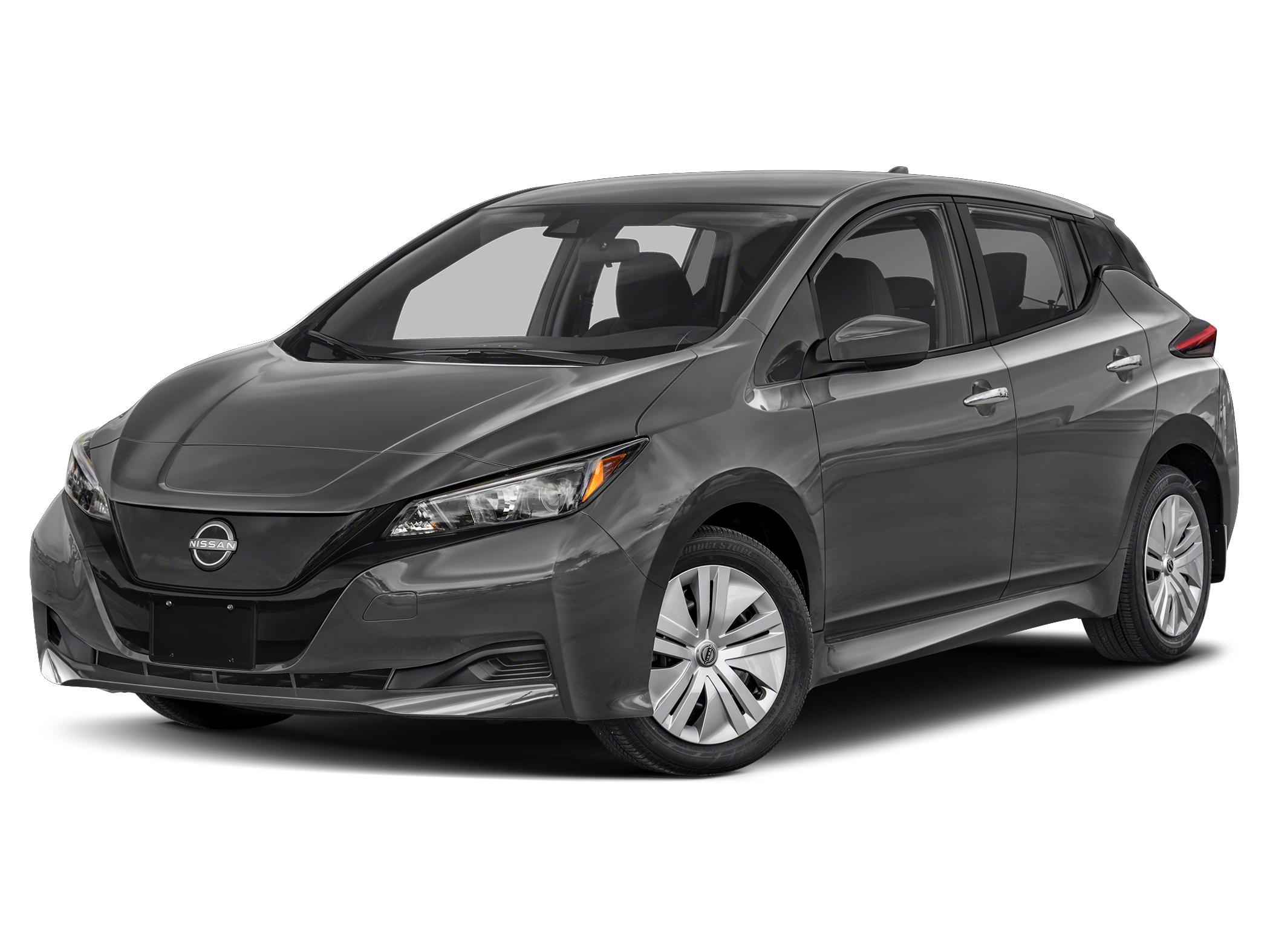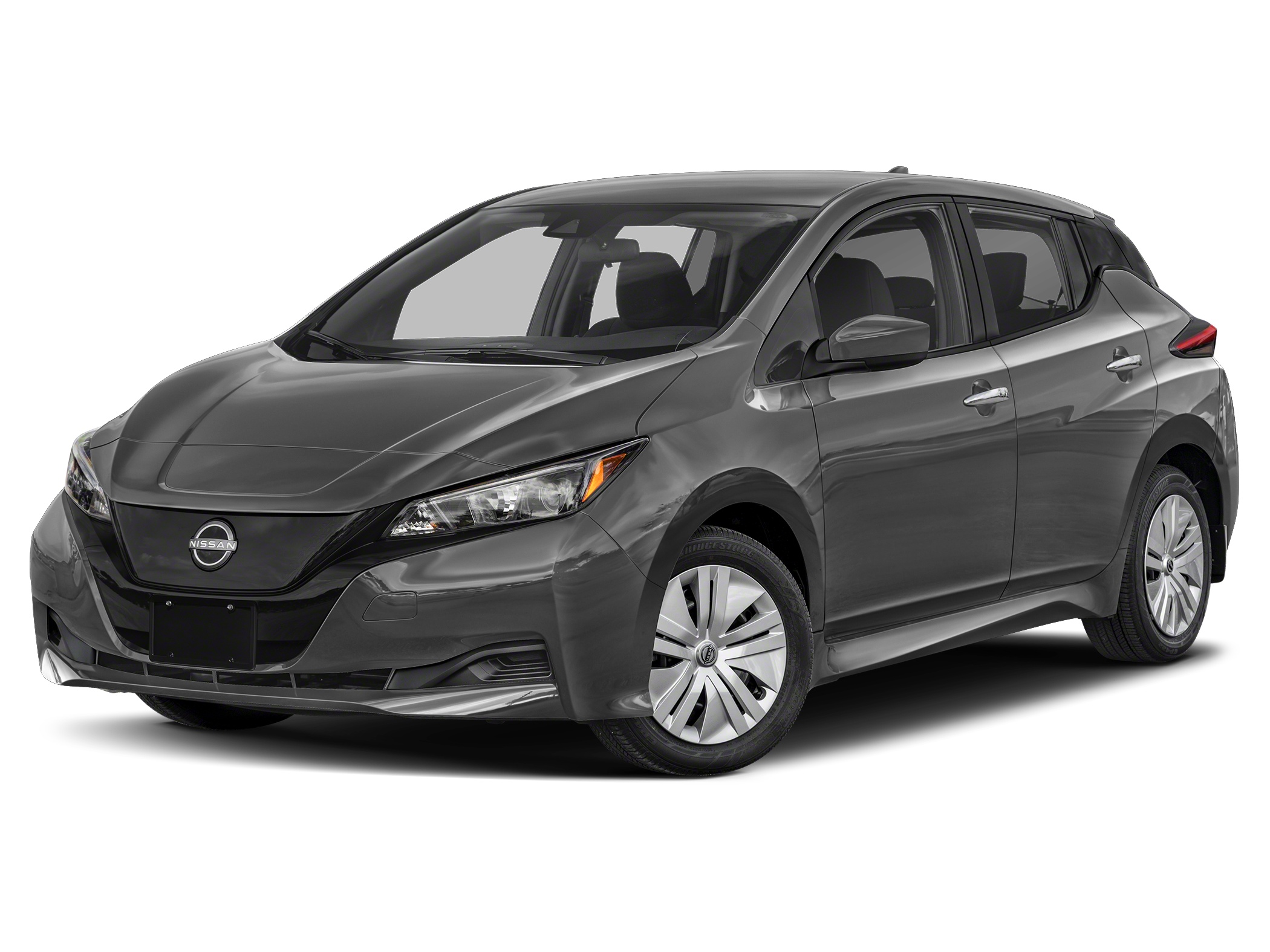REVIEWS AND RATINGS
What others are saying
REVIEW AND TEST DRIVE
2024 Nissan Leaf Review and Test Drive
A pioneer in introducing EVs to the masses, the Leaf now competes against better alternatives.
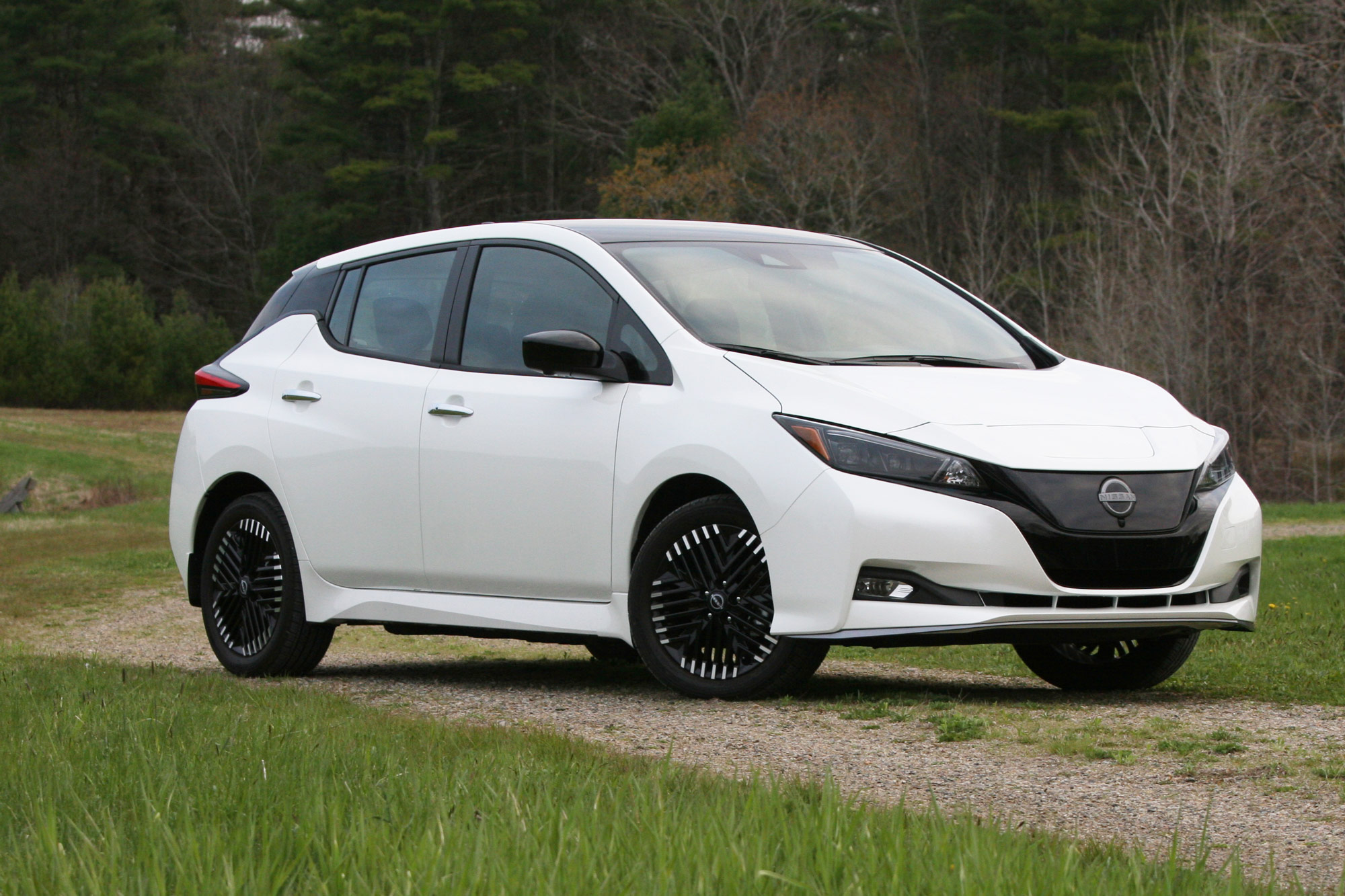 Thom Blackett
Thom BlackettMore than ever, I'm convinced electric vehicles (EVs) don't suit "What if…?" drivers like me.
"What if I need to drive somewhere for an emergency?"
"What if there's an unexpected detour?"
"What if my plans change mid-trip?"
This perspective was cemented in my mind when, with the 2024 Nissan Leaf at my disposal. I was embarking on a trip to northwestern Maine, where charging stations were as rare as a reliable cell signal. My trip eventually racked up roughly 600 miles, across the state, so I didn't take the Leaf on the trip.
Driving Nissan's EV would require extensive planning to coordinate recharging, assuming charging stations were available within range and extra time for that task. Rushing to make distant, last-minute appointments would've been impossible.
However, after a few 90-mile round trip commutes and many local drives, I appreciated the little EV's lively demeanor and comfort. And, to be fair, the Leaf can't be blamed for a lack of infrastructure or my aversion to planning.
Still, by offering greater range, quicker charging, and the inclusion of a more common charging adapter, the Leaf's primary competitors from Hyundai and Kia are closer to putting my "What if…?" questions to rest, while the Leaf is not.
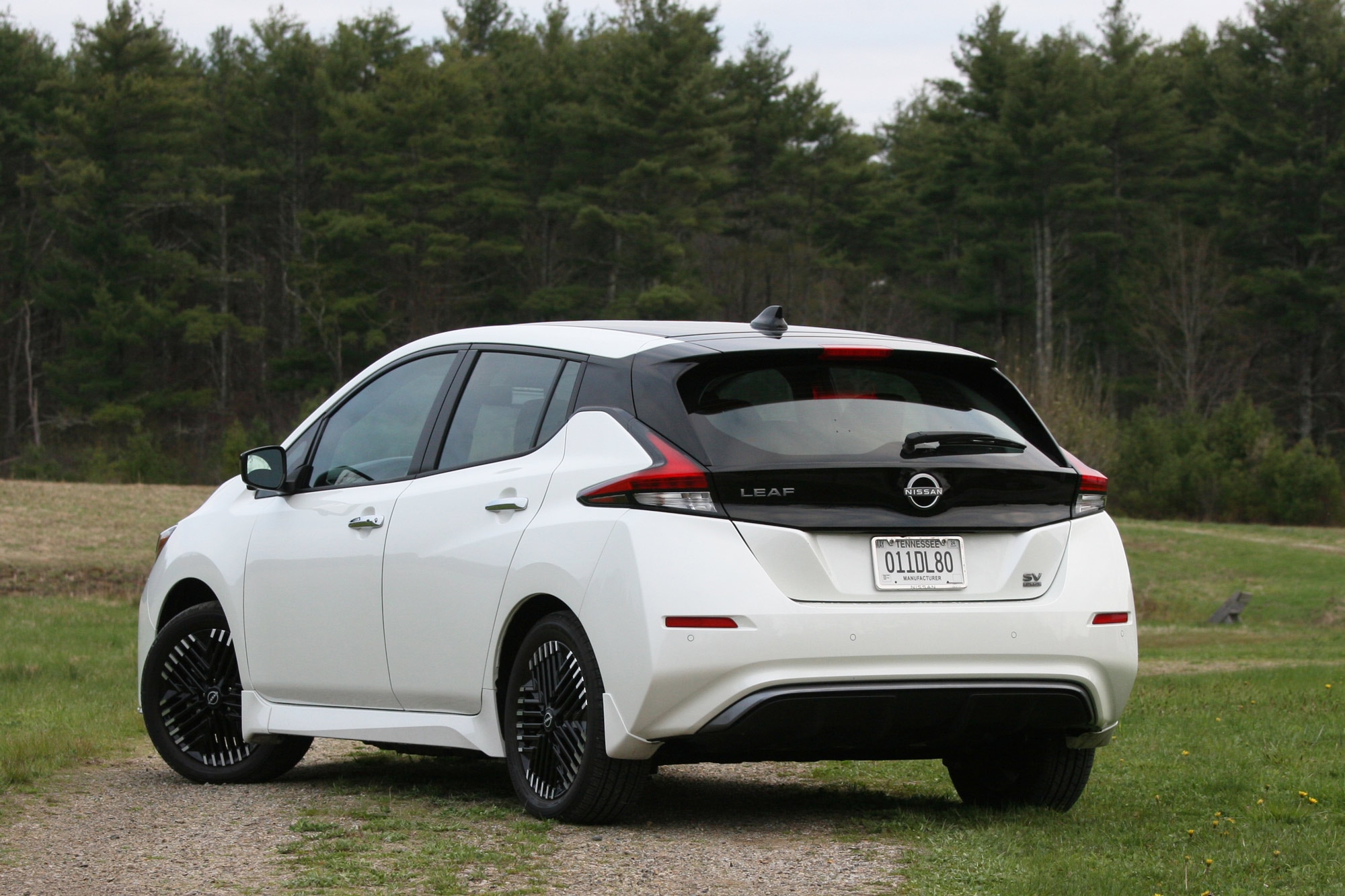 Thom Blackett
Thom Blackett
2024 Nissan Leaf Has Available Tax Credit
The 2024 Nissan Leaf is available in S and SV Plus trim levels. Base prices range from the high $20,000s to the high $30,000s, including the destination charge to ship the car from Nissan's Smyrna, Tennessee, factory to your local dealership. Since Nissan builds it in the United States, the 2024 Leaf is eligible for a $3,750 federal tax credit.
For this Leaf review, I test-drove the SV Plus near my home in southern Maine. The optional equipment list highlights included splash guards, a carpeted floor mat and cargo mat package, and two-tone paint. The manufacturer's suggested retail price (MSRP) of my test vehicle was $38,585, including the $1,140 destination charge. Nissan provided the vehicle for this Leaf review.
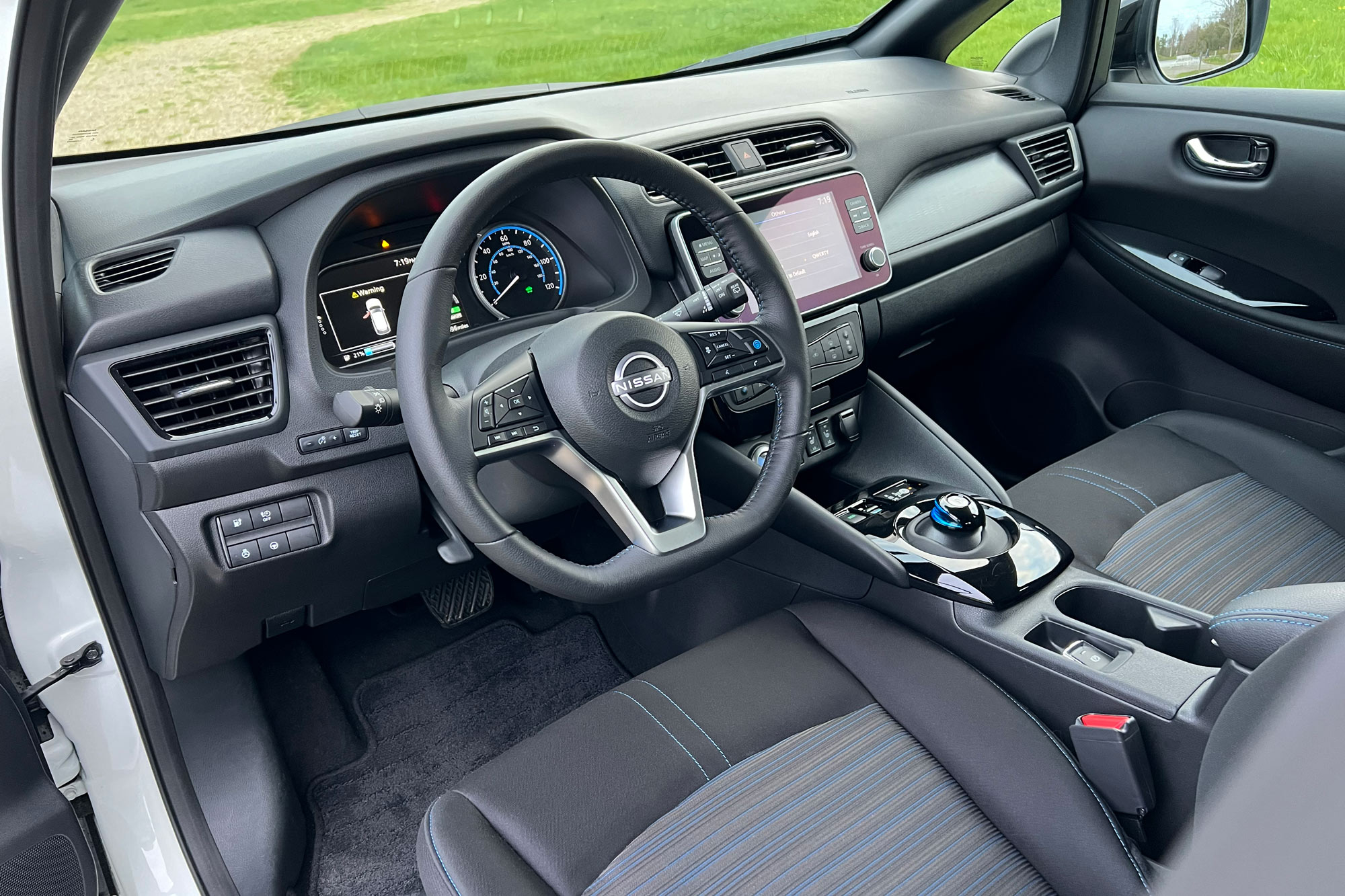 Thom Blackett
Thom Blackett
Design Is Under-The-Radar Outside, With Simple and Intuitive Styling Inside
When it debuted for the 2010 model year, this EV's styling made it an odd duck. Over time, the Leaf has adopted more conventional styling, while newer rivals push boundaries with potentially polarizing designs. For drivers who prefer relatively inconspicuous electrified transportation, the 2024 Leaf is a solid choice.
Before test-driving the Leaf, I spent a week with a small crossover from a premium brand, which should meet or exceed Nissan's quality. As things turned out, the Leaf was far superior, from its soft-touch materials on the front doors and dashboard to the secure feel of the well-placed and intuitive climate controls. There are no coarse, grainy surfaces here, and there are no concerns about the long-term durability of the materials.
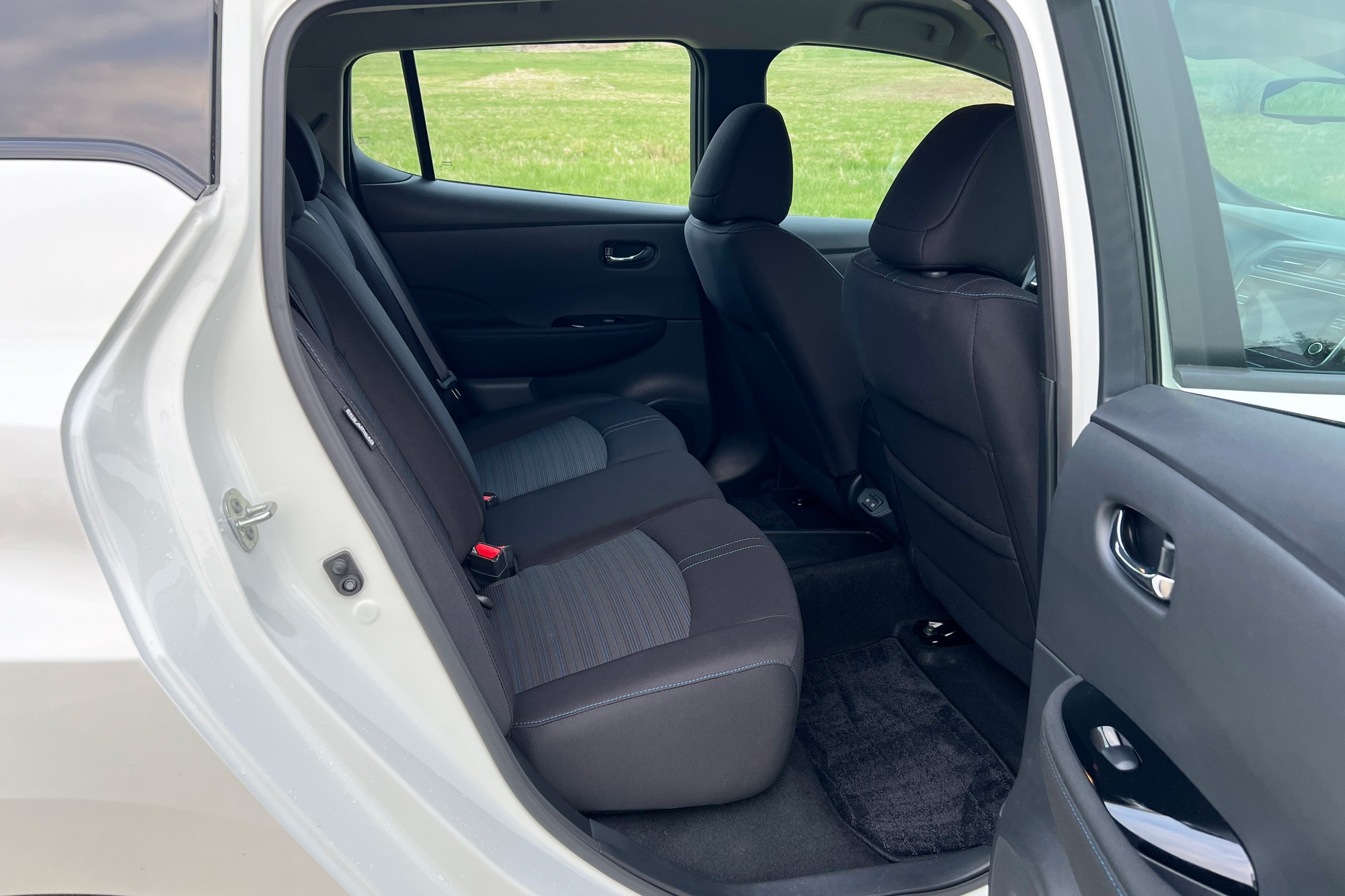 Thom Blackett
Thom Blackett
A Five-Passenger EV
From the driver's perspective, the Leaf SV Plus invites you in with a dual-setting heated seat offering ample, supportive cushions and multiple power adjustments. It's upholstered with soft cloth, whereas the heated tilt-and-telescopic steering wheel features quality leather with a bit of texture. A padded center armrest is large enough but sits too far back for my liking.
The rear bench seat, positioned with a slight recline, is technically built for three. In reality, two is cozy, and three would dismiss any social norms about personal space. The front seatbacks are soft, a plus for folks with long legs, but there is no center armrest, and the placement of the battery pack — below the passenger compartment — raises the floor and limits headroom.
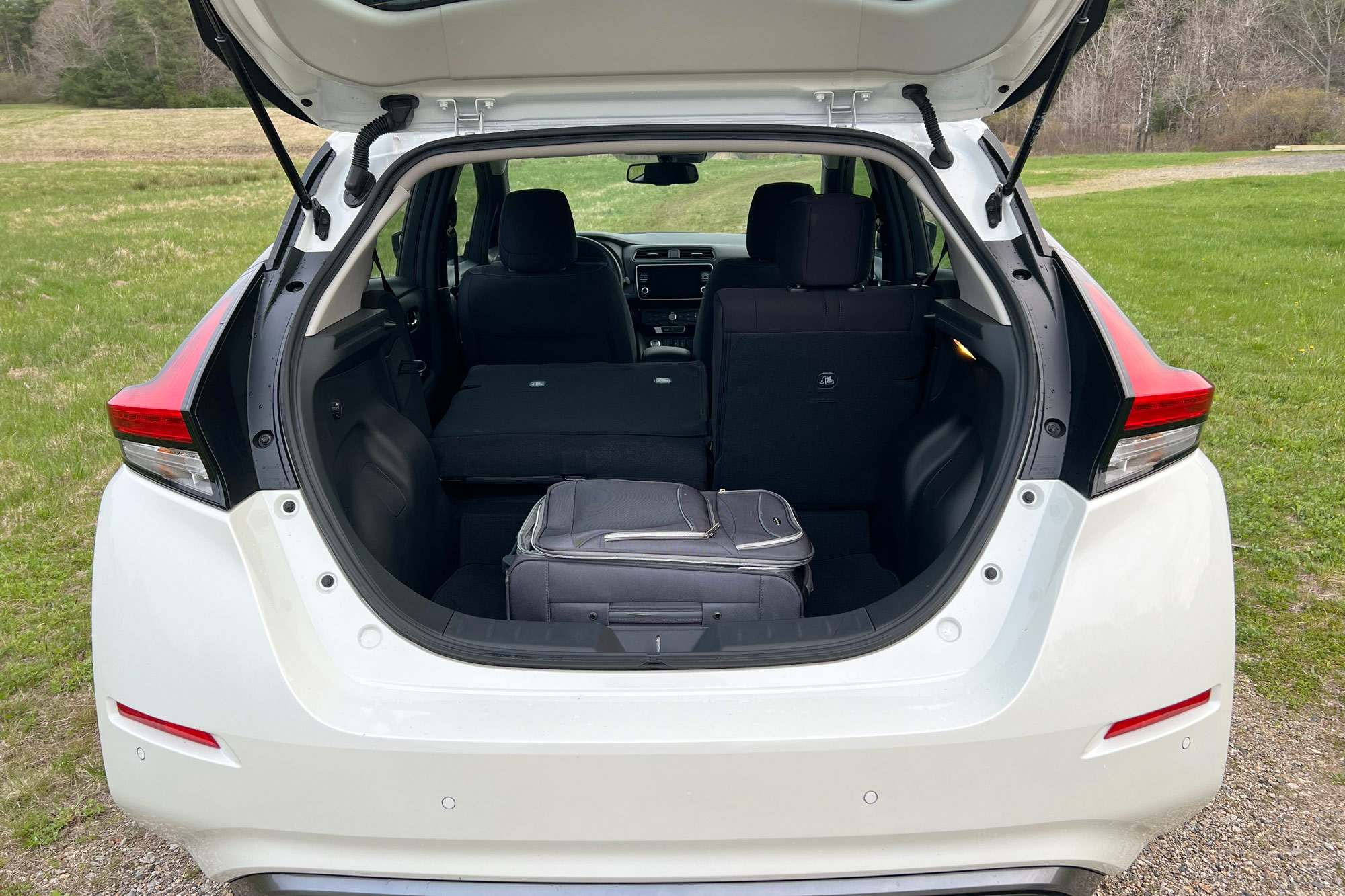 Thom Blackett
Thom Blackett
A Lowered Cargo Floor Limits the Nissan Leaf's Utility
With its hatchback design, the 2024 Nissan Leaf provides more versatility than a sedan, but the cargo area layout makes it difficult to utilize fully.
Raise the manual liftgate, and you'll find 23.6 cubic-feet of space. Unfortunately, that includes a sunken floor that presents a challenge when loading or unloading heavy items. Instead of simply sliding an item out of the Leaf, you must lift it several inches to clear the bumper. With a level floor, the Leaf would be more user-friendly, and Nissan could retain the lower well as a place for hidden storage.
Lowering the Leaf's rear seat creates 30 cu-ft of space, though the folded seatbacks also don't sit flush, so you have an even more significant disparity between the highest and lowest points of the cargo area. Worse, the Hyundai Kona Electric and Kia Niro EV blow the Leaf away with a maximum volume of 63.7 cu-ft.
Other storage provisions include a glovebox, a small cubby below the instrument panel, six cupholders, a seatback pocket, and a small compartment below the front center armrest.
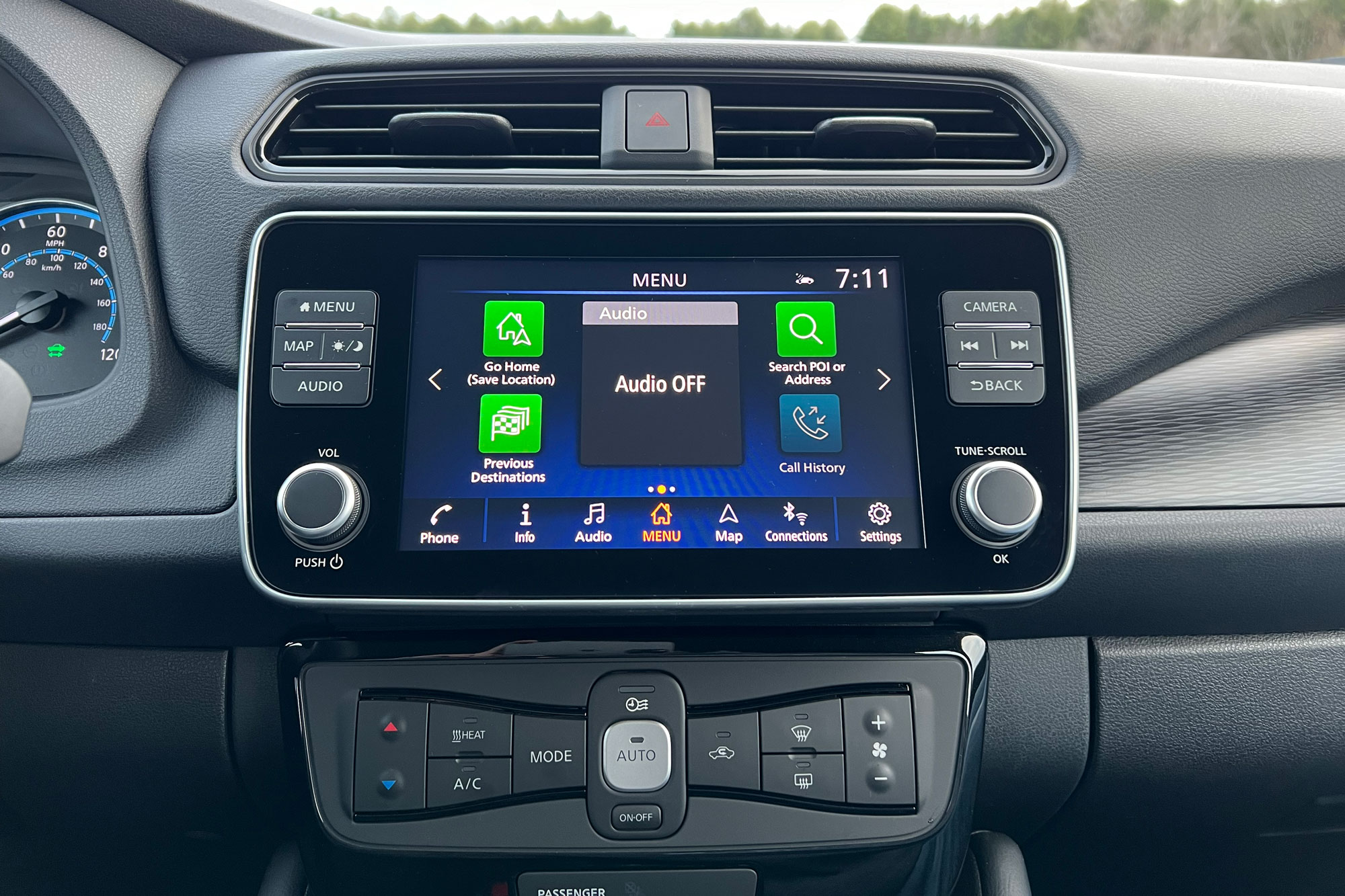 Thom Blackett
Thom Blackett
2024 Nissan Leaf Infotainment Is Simple
If I had to choose between a somewhat dated and simple infotainment system or one that's more advanced and complex, I'd likely opt for the former. So, I wasn't disappointed to find the 2024 Leaf SV Plus without all of the latest tech and instead employing handy tuning and volume knobs and clearly labeled buttons. Granted, the touchscreen display may not be as crisp as possible, but navigating through the various menus is a cinch.
That's important since the Leaf's voice recognition system only responds to a limited number of specific commands. It's like expecting a helpful response from a teenager immersed in their favorite video game. You're better off packing a USB cable to use the car's built-in Apple CarPlay or Android Auto connection. With that, you can interact directly with your phone's virtual assistant, which is much more helpful.
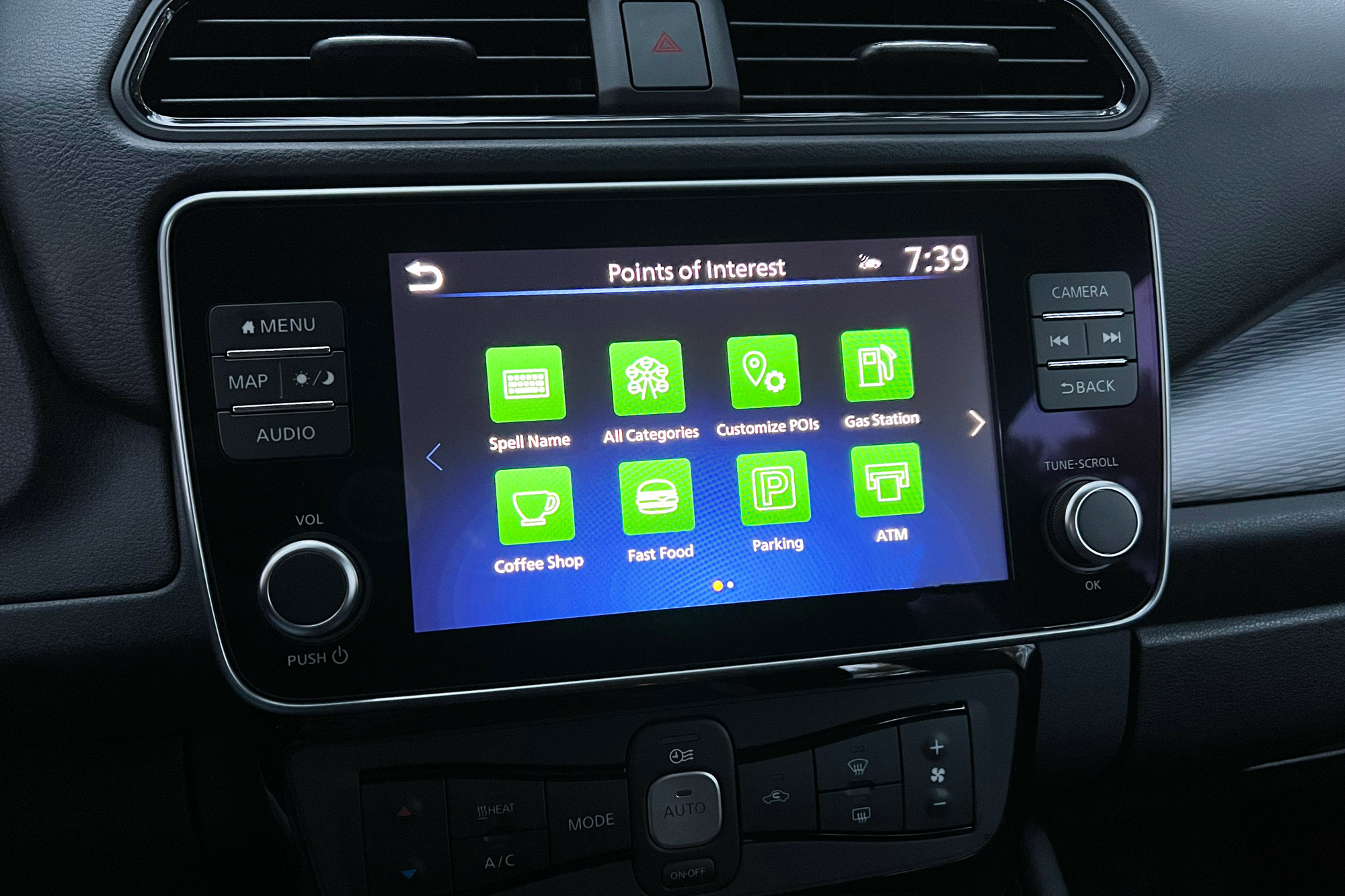 Thom Blackett
Thom Blackett
The Navigation Warns of Phantom Toll Booths and Guides The EV to Gas Stations
The Leaf's built-in navigation system had me raising an eyebrow more than once because it had an odd habit of alerting me to non-existent toll booths or maybe toll booths of days gone by.
One instance was in York, Maine, where Interstate 95 (I-95) and Route 1 run parallel. At roughly the same point on both roads, the infotainment system cautioned about an upcoming toll booth. There has never been a toll booth on Route 1, and the booth on I-95 moved at least one mile north years ago.
I discovered another navigation-related quirk when the Leaf's battery neared depletion, and I needed to find a place to plug in. The 2024 Leaf comes with a trial subscription for the NissanConnect EV app. Since I didn't own the car or have the app on my phone, I sifted through the touchscreen icons, looking for something to direct me to a charging station.
As it turns out, the Leaf's navigation system helps you find gas stations, not charging stations. That's perplexing for an EV. I wanted to give the Nissan the benefit of the doubt, so I tapped the icon, thinking it must've been mislabeled and would guide me to electricity. Instead, it returned a list of nearby Citgo and Irving stations. I resorted to doing a Google search on my iPhone.
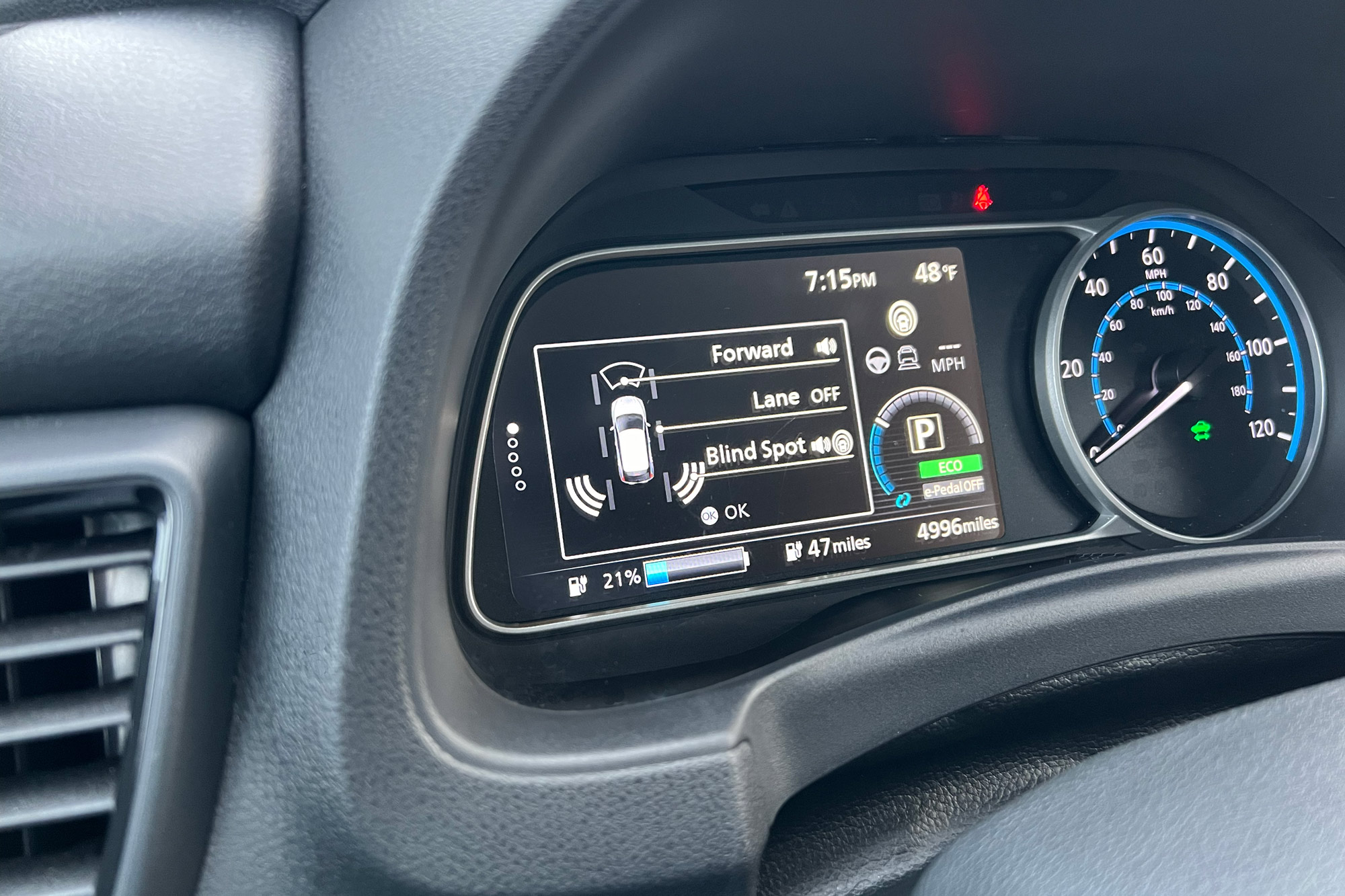 Thom Blackett
Thom Blackett
2024 Nissan Leaf Safety Features Are Effective
The 2024 Leaf scores well overall in National Highway Traffic Safety Administration crash tests. To help prevent a collision from occurring in the first place, Nissan Safety Shield 360 is standard, bundling several safety features together, including a lane-departure warning system with lane-keeping assistance.
As I've occasionally experienced in vehicles from multiple car companies, the tech offered inconsistent performance. Without any traffic nearby, I steered toward the center and outer lines to test the system's response, which was sometimes noticeable but restrained. It would slow the car slightly and gently guide me back toward the center of the lane. Other times, the system failed to respond at all. I tried to determine if some common denominator was causing this but couldn't point to anything.
Nissan also equips the Leaf SV Plus with ProPilot Assist technology, which includes adaptive cruise control and lane-centering assist. After I set my speed and preferred distance from vehicles ahead, the system went about its job seamlessly. Acceleration, deceleration, and steering inputs were all subtle. To use ProPilot Assist, drivers must keep their hands on the steering wheel.
ProPilot does not include a lane-changing function. When lane-centering is active, a green steering wheel shows in the gauge cluster. It turns gray to indicate temporary deactivation when using the turn signal, and it returns to green when the lane change is complete.
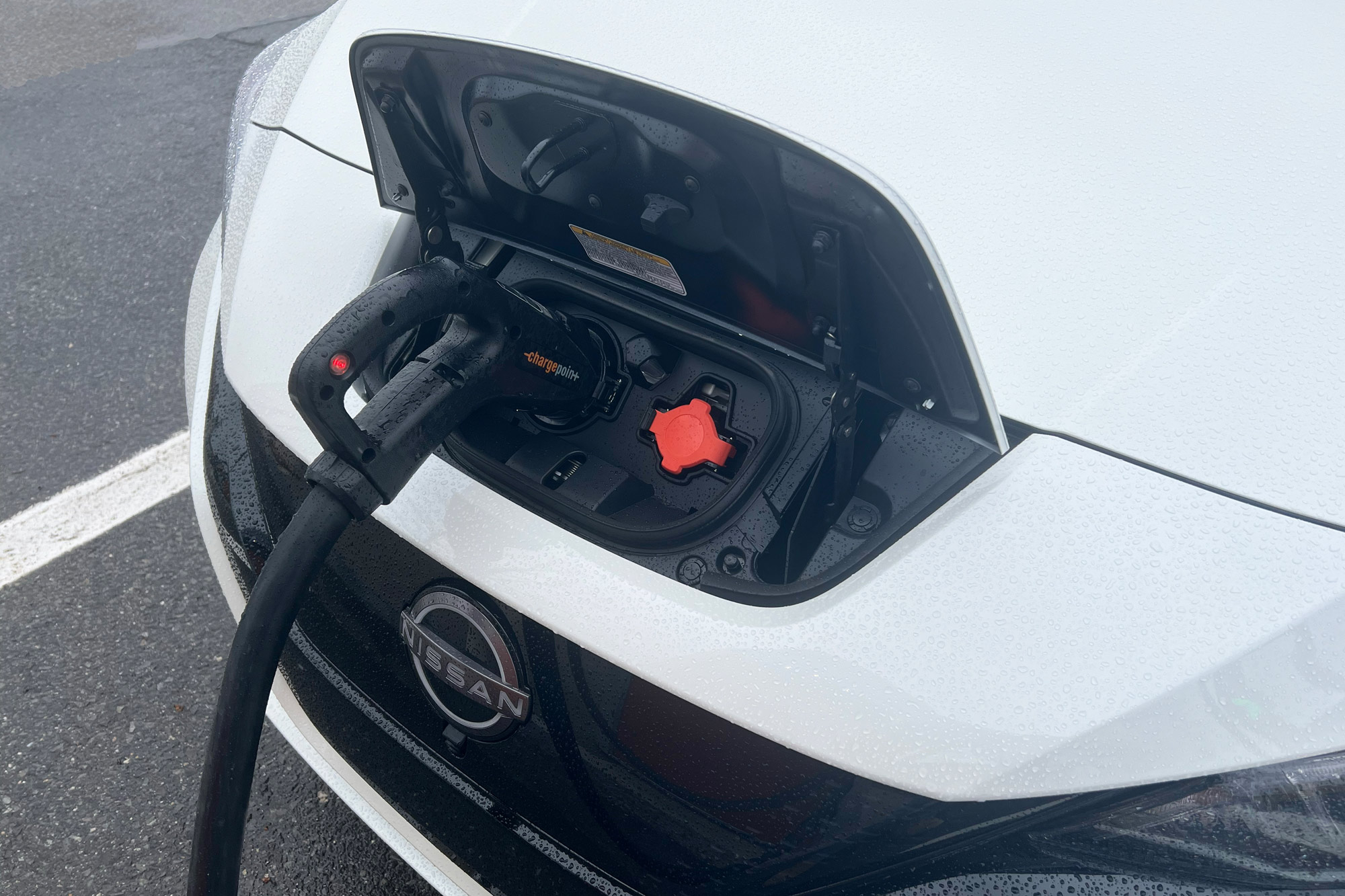 Thom Blackett
Thom Blackett
A Fully-Electric Powertrain Turns the Nissan Leaf's Front Wheels
Nissan equips the 2024 Leaf with a 160-kW (214-horsepower) electric motor, a one-speed direct-drive transmission that delivers output to the front wheels, and a 60-kWh lithium-ion battery pack you recharge using the standard 120/240-volt power cord. A regenerative braking system also helps charge the battery by capturing what would usually be wasted energy during deceleration.
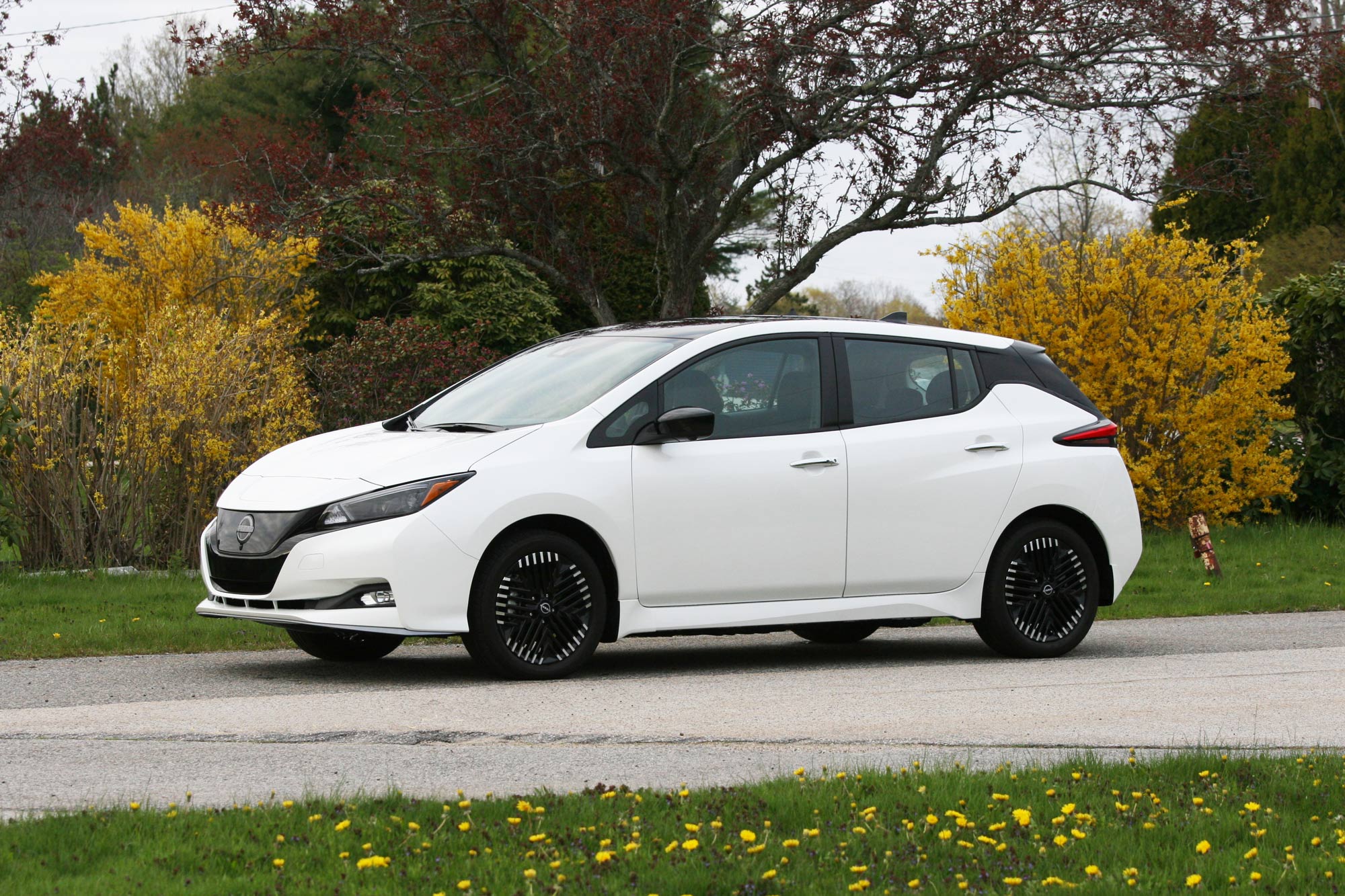 Thom Blackett
Thom Blackett
Limited Range and Charging Options Hamper an Otherwise Enjoyable Drive
In typical EV fashion, the Leaf provides brisk acceleration that makes the car feel quick, if not fast. Eco mode cuts power and makes the accelerator less responsive to extend the driving range. The EPA suggests the Leaf SV Plus has a maximum range of 212 miles.
During my testing, the estimated range listed in the gauge cluster exceeded the actual miles traveled by a decent amount. After a 45-mile highway commute, there was a negative discrepancy of 13 miles. In my city and secondary-road evaluations, the Leaf lost 107 miles of range over 86 driven miles in one trip and 174 miles of range for a second 140-mile trip. According to the gauge display, I was averaging 3.6 miles/kWh.
If the Leaf's real-world range was disappointing, the charging experience was downright aggravating. The car comes with a 120/240-volt power cord, but without a home charger and access only to a 120-volt outlet, I'd be looking at up to two and a half days to bring the battery back to full capacity. Instead, I sought public charging stations, which is when I realized the Leaf uses a CHAdeMO connector instead of the more common SAE Combo connector.
My local station had one CHAdeMO plug that was either suffering a network error or blocked by someone using one of the seven available SAE Combo connectors. A second option, about 10 miles away, was occupied. With little range left, I skipped traveling to other nearby chargers that may or may not be working and instead headed 20 miles north on I-95 to a service plaza that would serve my needs.
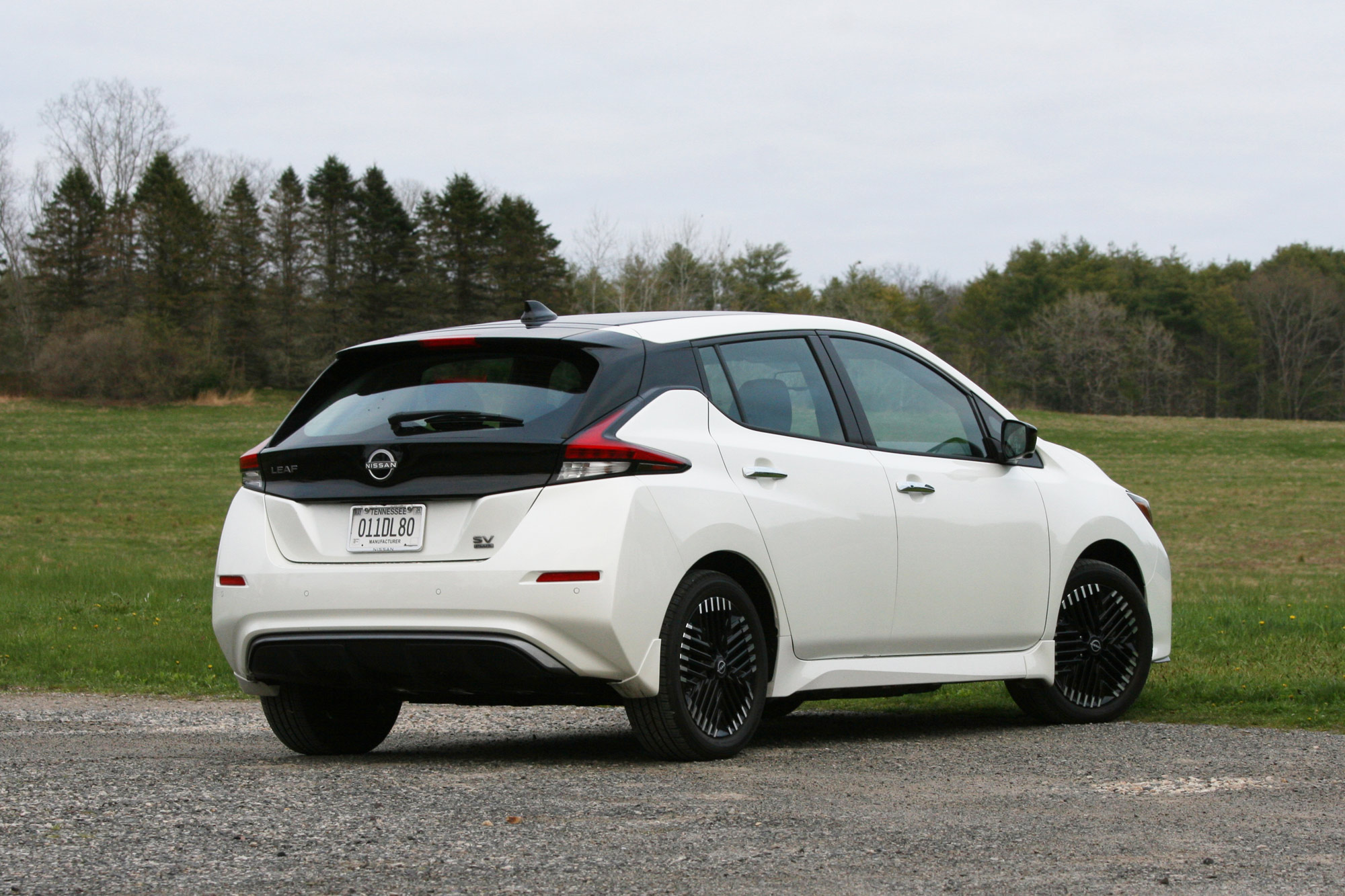 Thom Blackett
Thom Blackett
I had to do this twice during my test drive, meaning I used up 80 miles of range to recharge the car's battery. The first time, I arrived with 3% of the battery charge remaining, or an estimated 8 miles. I connected it to a 63-kW charger (peak delivery during my recharge was 51 kW), bringing the battery back to 95% in one hour and 32 minutes for $27.42. Using a home charger would be significantly cheaper.
The Leaf includes an e-Pedal feature often called one-pedal driving that allows you to drive without using the brake pedal in some situations. It's an exaggerated form of regenerative braking, as it slows the vehicle significantly when you lift your foot from the accelerator pedal.
The e-Pedal feature allows you to bring the Leaf to a complete stop, but there's a learning curve. However, using the e-Pedal quickly became second nature for me around town, and any place speeds were low. Still, my foot was always ready to jump on the brakes when necessary.
Like its interior materials, the 2024 Nissan Leaf's ride and handling characteristics surprised me. On rough pavement, the suspension remained composed without transferring unwelcome sounds or vibrations to the cabin, which added to the overall impression of quality.
Heavy steering initially suggests you're in for a sporty experience. In reality, it's vague and doesn't provide any feedback from the road. For the Leaf, chassis tuning is all about comfort and compliance.
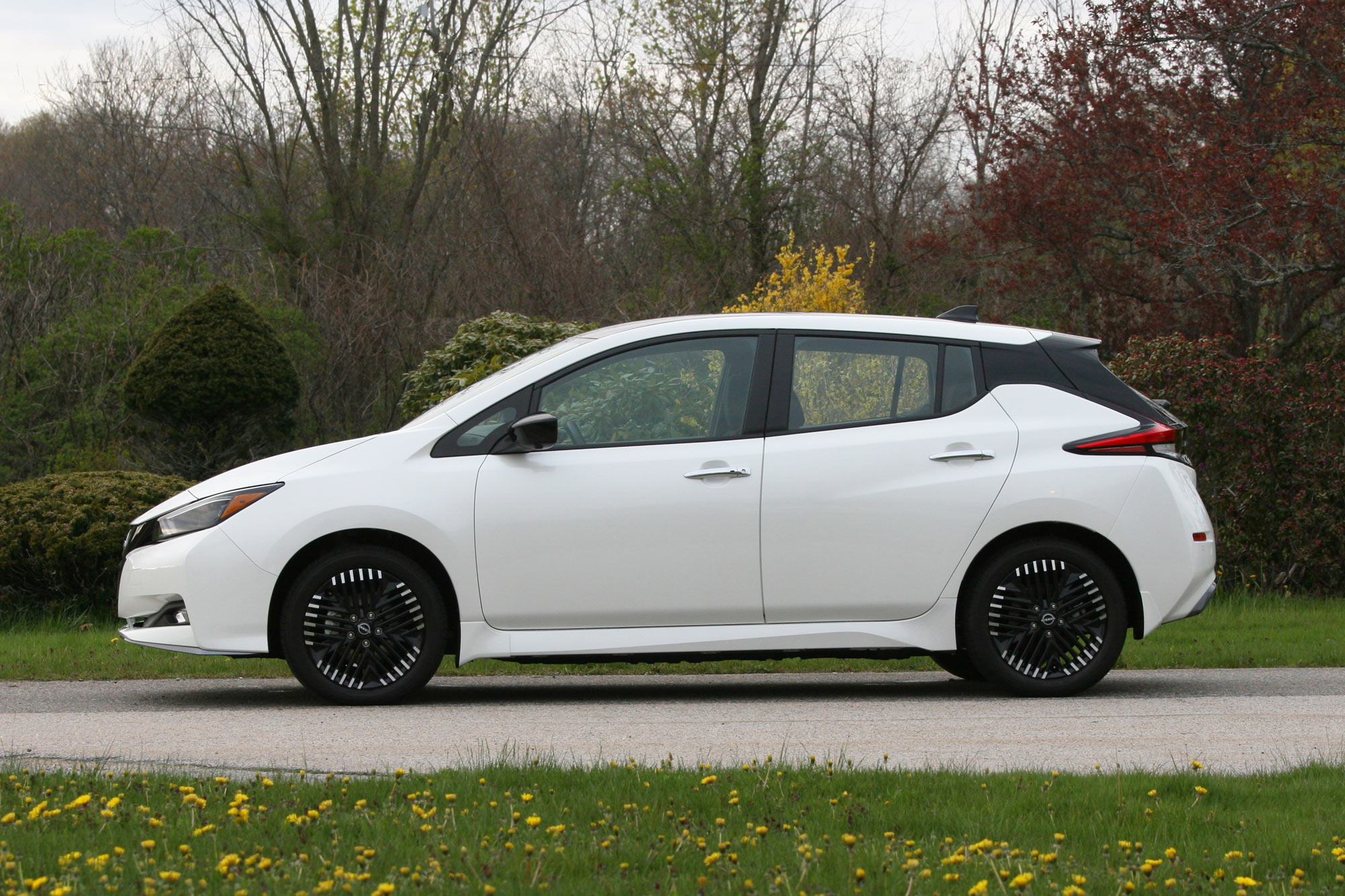 Thom Blackett
Thom Blackett
A Thoroughly Enjoyable EV That Falls Short in Key EV Areas
Highlights of the 2024 Nissan Leaf SV Plus include a comfortable driving position, quality materials, an intuitive infotainment system, and effective yet unobtrusive safety systems. However, in terms of hatchback utility and EV performance, similarly priced competitors like the Hyundai Kona Electric and Kia Niro EV have more to offer.
Written by humans.
Edited by humans.
 Thom Blackett
Thom BlackettEveryone needs a few things to be passionate about in life. For me, cars are near the top of the list. I’m constantly searching the classifieds for that bargain-priced, one-owner Datsun 240Z barn find. I’m always up for seemingly endless conversations about the cars we wish our parents had kept, the benefits of EVs versus the lure of a thumping V8, or which reliable crossover SUV best suits your family and your dogs. Needless to say, I feel fortunate to spend my work hours analyzing vehicle data, test-driving the latest all-new or updated models, and sharing the knowledge and insights I’ve gained with readers.
